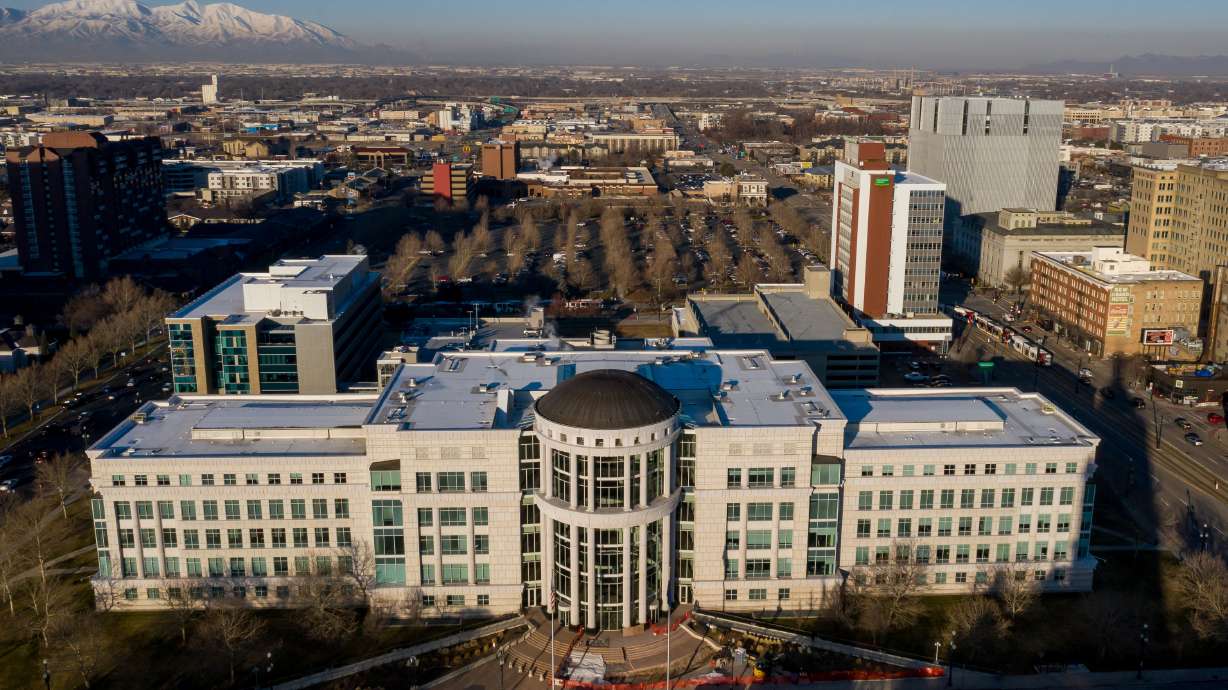Estimated read time: 3-4 minutes
This archived news story is available only for your personal, non-commercial use. Information in the story may be outdated or superseded by additional information. Reading or replaying the story in its archived form does not constitute a republication of the story.
SALT LAKE CITY — Voters don't elect Utah's judges in the first place, but they do get to decide who stays on the bench.
Nearly 60 judges from all levels of the state's justice system are up for retention on the Nov. 3 ballot, according to the Utah Judicial Performance Evaluation Commission. The independent state panel evaluates judges in an effort to help Utah voters and posts its recommendations online.
"You don't have to look far in this state and over the course of this past summer to see that people are really passionate about their justice system," said Jennifer Yim, the panel's executive director. "Voters have a limited and sometimes indirect say in their justice system, but here's an opportunity for voters to weigh in, in a real way."
Those on the ballot range from justice court judges — who preside over small claims disputes, traffic citations and misdemeanor cases — to a justice on the Utah Supreme Court, the last stop for appeals in the state system.
Each of the 59 Utah judges now seeking to remain on the bench has met the criteria to keep their jobs, according to the commission.
But Yim said there is different information voters can consult about each judge's strengths and weaknesses in the write-ups on the commission's website.
Members of the nonpartisan panel include retired Utah Supreme Court Justice Christine Durham and several lawyers, as well as nonattorneys.
The governor appoints judges at the district court and appeals court levels, and the state Senate must approve. Municipal officials or county leaders pick justice court judges.
Before voting, the panel considers surveys of attorneys, jurors and court employees, in addition to public input, courtroom observers' notes and other criteria.
Its members can't rely on outside information, including their own experience with a certain judge, making their recommendation, Yim noted. They also do not evaluate the correctness of a particular ruling, but look at a judge's behavior more broadly.
The panel voted unanimously to recommend retention for most judges, and only one had more than a single member vote no.
In its least favorable review, the panel voted 9-3 for Judge John Dow, who presides over the Tooele County Justice Court.
Dow, appointed to the bench in 2010, met the group's standards. However, the panel noted the Utah Supreme Court reprimanded Dow last year for texting a video of a man's genitals to his clerks, who reported an unprofessional work environment during a misconduct investigation.
"The commission finds the judge's actions deeply concerning, though it recognizes that the judge has taken responsibility for his actions," the panel's write-up says. Dow apologized, completed workplace sensitivity training and pledged to exercise better judgment.
The findings are made available to judges before the deadline to file paperwork seeking retention. The panel voted that two not be retained and those judges chose not to run, Yim said.
Two of Utah's district judges have been voted out by a majority in recent memory, and that happened before the Utah Legislature created the outside review panel.
In 2006, 54% of voters in Salt Lake, Summit and Tooele counties removed then-3rd District Judge Leslie Lewis. She had drawn criticism for ordering a courtroom observer into a holding cell for 20 minutes as a penalty for sighing and leaving the room, and for instructing a defendant not to tell prosecutors she was shortening his sentence.
Four years earlier, another 3rd District judge, David Young, lost by 53% in his retention election after his critics said he was lenient or biased in sex offender and DUI cases.
State and justice court judges go up for retention after an initial three years, and every six years after that; Supreme Court justices every 10.
The evaluations can be found at judges.utah.gov.










